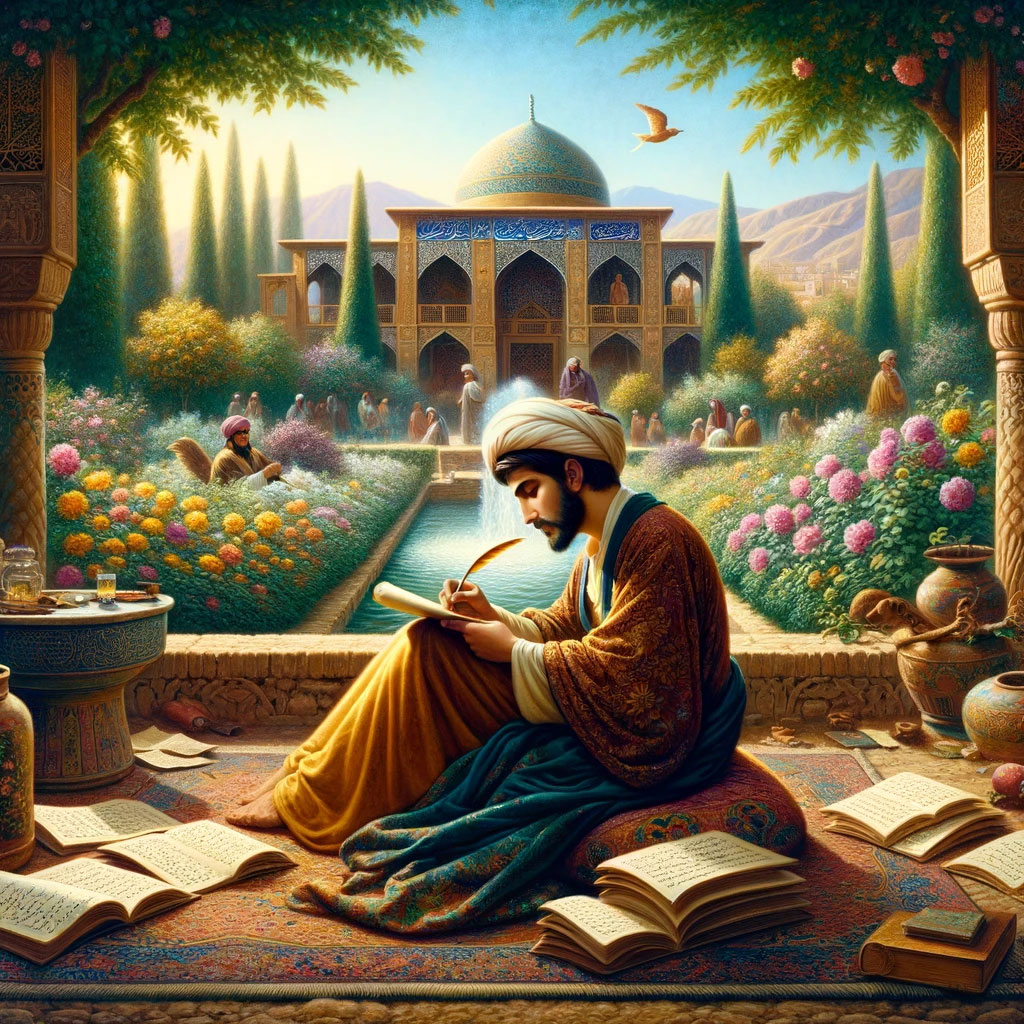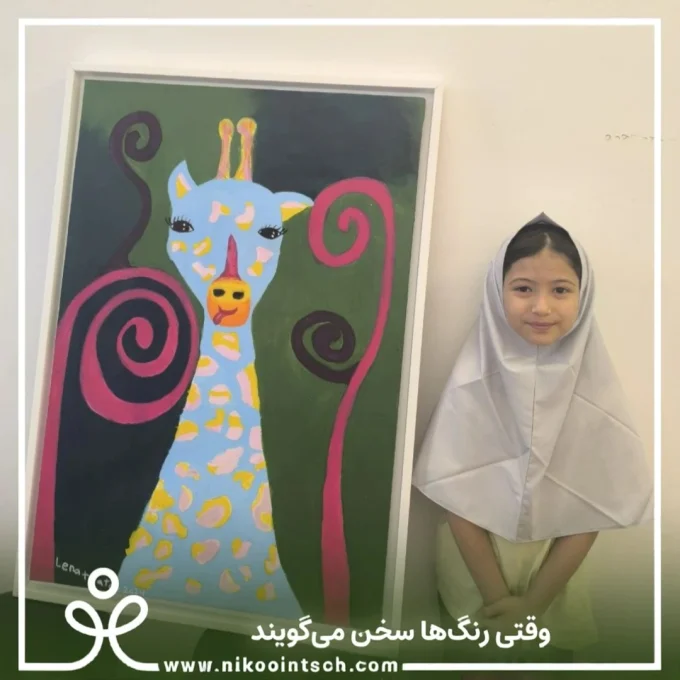Introduction:
📜 Saadi of Shiraz, one of the most prominent poets of Persian literature, is renowned not only for the beauty of his poetry but also for his philosophical and social views. Using the language of poetry, he managed to convey new ideas to his society that continue to be of interest worldwide. In this article, we will explore Saadi’s life, works, and his impact on Iranian literature and culture, as well as his role in modern education.
Biography of Saadi:
🌍 Born in Shiraz, the heart of Iran and a city of poetry and mysticism, Saadi spent most of his life traveling and studying. These journeys provided him the opportunity to become acquainted with various cultures and thoughts, which he incorporated into his poetry. His nomadic life greatly influenced his views on love, friendship, and philanthropy.
Literary Style and Poetic Features of Saadi:
📖 Employing various poetic styles such as ghazal, qasida, and quatrains, Saadi was able to transmit his deep moral and social messages to his readers. In his famous works, Bustan and Golestan, he crafted a vivid picture of an ideal society where justice and compassion prevail, using fluent and eloquent prose.
Cultural and Social Impact of Saadi’s Works:
🌐 Saadi’s works have been recognized as a source of ethical and literary education in Iran not only in his time but also in the centuries that followed. His poetry has acted as a bridge between generations, strengthening human values within the Iranian culture.
Saadi and Modern Education:
🏫 At Nikoo International School, the Literature Department undertakes special efforts to teach Saadi’s works and utilize his poems in literature classes. The teachers at this school emphasize a deep understanding of classic texts and their application in modern life, helping students make meaningful connections with these works.
Conclusion:
🌟 Studying the life and works of Saadi not only allows us to familiarize ourselves with one of the richest parts of Iran’s cultural and literary heritage but also gives us the opportunity to benefit from his ideas in our everyday lives. He continues to serve as a guiding light for a better understanding of ethics and humanity in today’s world.












